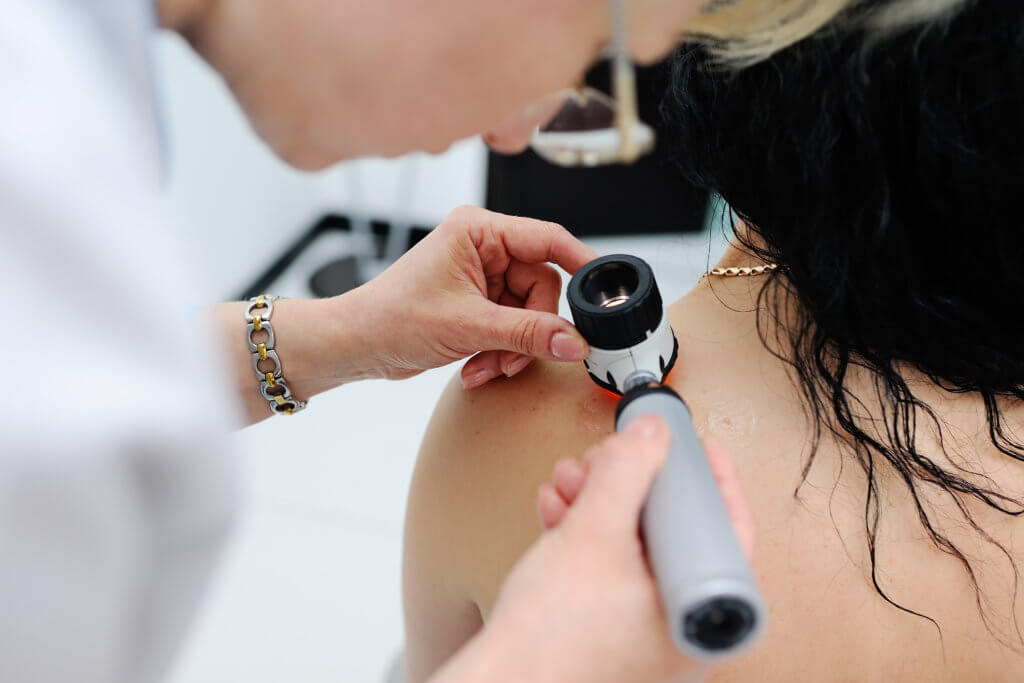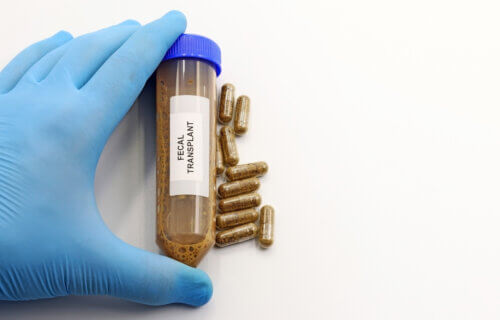LONDON, Ontario — Swapping poop from a healthier person could be the secret to beating skin cancer. Researchers in Canada recently released the first results of a new clinical trial using fecal transplants to treat people with advanced melanoma. Their findings showed that the transplanted samples from healthy donors into people with melanoma was safe and improved their response to standard cancer treatments.
“In this study, we aimed to improve melanoma patients’ response to immunotherapy by improving the health of their microbiome through fecal transplants,” says Dr. John Lenehan, a medical oncologist at London Health Sciences Centre’s London Regional Cancer Program, in a media release.
Immunotherapy is one cancer treatment that worked better after patients received another person’s poop, medically known as a fecal microbiota transplant. This type of cancer drug preps the immune system to target and destroy cancer cells. The treatment has helped extend the lives of millions of people. However, they only work 40 to 50 percent of the time.
There has been speculation about the potential role the gut microbiome plays in cancer treatment response. Previous research has established a strong connection between an unhealthy gut and a poor immune system. A fecal transplant from a healthy donor could restore an unhealthy gut to a healthy status by supplying the “good” bacteria it needs to function correctly.
“The connection between the microbiome, the immune system and cancer treatment is a growing field in science,” explains Dr. Saman Maleki, a scientist at Lawson and London Regional Cancer Program who served as the senior author on the study. “This study aimed to harness microbes to improve outcomes for patients with melanoma.”

The first phase of the trial recruited 20 people with melanoma who were scheduled to undergo immunotherapy. One week before treatment, each person ingested 40 fecal transplant capsules in a single session.
Most people who had fecal transplants and immunotherapy did not have any concerning side-effects. Five participants did experience discomforting events and stopped treatment. Sixty-five percent of participants who continued to show evidence of harboring the donors’ healthy microbiome had a response to immunotherapy.
“We have reached a plateau in treating melanoma with immunotherapy, but the microbiome has the potential to be a paradigm shift,” says Dr. Bertrand Routy, an oncologist and director of the Centre hospitalier de l’Université de Montréal Microbiome Center. “This study puts Canada at the forefront of microbiome research by showing we can safely improve patients’ response to immunotherapy through fecal transplants.”
The trial is unique from other fecal transplant studies because it is the first to deliver the samples in capsule form to people with cancer. According to the authors, part of their success in improving immunotherapy response rates is because of the capsules.
A second phase 2 trial is underway. This study will investigate how effective fecal transplants are in treating other cancers such as pancreatic cancer and lung cancer. There is also talks of testing fecal transplants for treatment of HIV and rheumatoid arthritis.
The study is published in the journal Nature Medicine.

